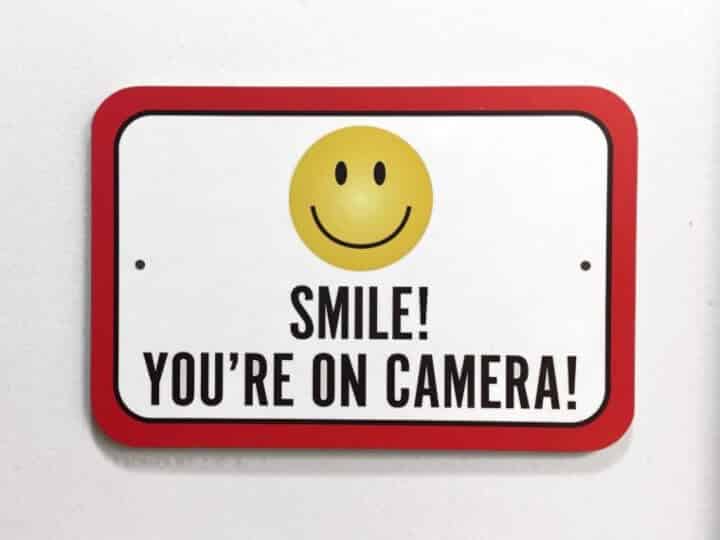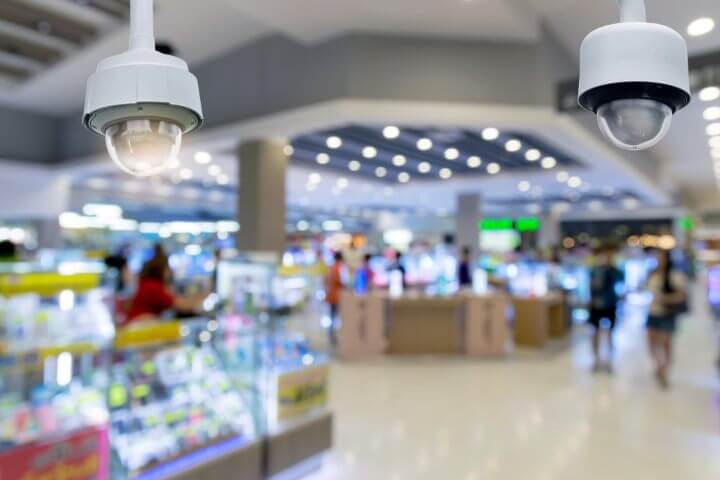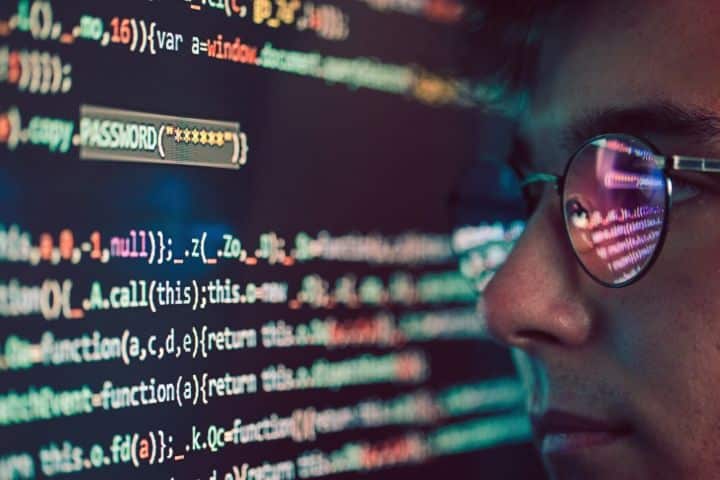Nowadays wherever you go a camera is watching your every move and this is one of the reasons people are asking "are security cameras a HIPAA violation ?"
It doesn't sound that bad knowing it is for our safety.
But what happens when it crosses your privacy line? Perhaps the security cameras are a HIPAA violation depending on the way they are used, let's discuss the topic...
Who is to blame? Could you exercise your rights? What does the HIPAA say? What are your options?

The Employer and the HIPAA violation
First, let's understand why an employer would install a camera or security system in a business or office.
There are many reasons to have cameras when running your business. Mainly focused around having safety around the office and after hours.
Most employers have security cameras for common reasons, such as being able to identify a robber, knowing who is in the office when away, and even to have peace of mind.
However, having cameras around might also keep employees from performing wrongful acts such as going on Facebook or as serious as stealing money from your business.
In short, the boss does have a motive to monitor their employees. Not just for their own safety, but their staff and the general public too. So in this case the use of security camera are not a HIPAA violation.
Legality's influence
Yet when deciding to install cameras, legality is an input on what a boss can and not do. Legally they are allowed to monitor employees, but requirements must be followed.
As an employer, it is crucial to keep in mind that the sole presence of a camera will not prevent wrongful actions. This is manly because employers do not constantly watch the footage.
Therefore, when deciding to install cameras, it is more of a personal choice. The consideration of the employer and their feelings play a roll. Whether it is morally right to monitor the employees and the office to prioritize safety is up to them.
Though it might not keep someone from clocking in late. Or going into Facebook just for a little. Or even get a bit of a longer lunch break. It does influence the employees not to.
It also will lower the chances that someone will steal from your business as people behave accordingly to whether or not someone is watching them.
The point of having a security system is to use it to implement good things into your business. It is what you do with the footage, not whether you have it or not!
So is the Big Boss to blame?

Much of the decision of security measures for a business falls to the employer. Though there are certain limits set from state and federal laws, they are usually not involved at all!
Therefore, it might be up to your boss if you're the one that sits by the security camera... 😓
However, there are some things that your boss is NOT authorized to do by the states or federal law. So keep an eye out 👀.
For instance, acts such as wiretapping are not allowed by the federal/state law, therefore know that you can implement legal measures if it happens to you!
Other things such as recording a call and audio can be legal under some circumstances that can be different from state to state, and most of the time it requires your permission.
The Employees and the security cameras
Having security cameras constantly watching your every move at work can be quite intimidating as it is. Having your boss looking behind your shoulder can feel stressful.
But you shouldn't forget that the security systems and measures are for your safety too! There are actually many advantages to having a camera.
Most employees do not stop to think of the benefits they get too. It could be a way to prove an alibi in the court of law. Apart from show your work ethic, and even confirm you worked if you forgot to clock in.
Additionally, it will keep you focused on what you need to get done in the day. Show you earned your place in the company and can even lead to a raise! 💸💲
And if anything happens, whether between a client or employer, the cameras can always hold proof that will hold your statements to be true.
What are the types of surveillance systems ?

There are many in the market now. Though most companies only utilize one or two. The matching options of surveillance and software is almost endless. And they include:
- Video surveillance
- Audio or call recording
- Key cards, scanners or other access cards
- GPS tracking of company cars and/ or devices
Monitoring software is also globally available to companies, and features:
- Website/application tracking or blocking
- Device recording of screen
- Attendance and timekeeping
- Key logging
- Email monitoring
All of these methods can be useless if it does not work. And it can be quite an expensive investment.
Is monitoring employees effective?
Most times, implementing the idea that monitoring is happening may cause some employees to think twice before doing a wrongful action.
However, after a while, they might lack off. As there is nothing keeping them from pushing the limits of what they can do and end up getting away with.
Monitoring the activities of your employees might help overall, however, the wrongdoers will constantly find a way to walk around your rules.
Having a security system should primarily have the purpose of keeping the business from being robbed, or having footage of a criminal.
Yet, the final word is up to the boss, with certain restrictions of course. However, it might be a good intensive to keep people around the office motivated to do their work.
And again, there's always the concern about the HIPAA violation.
The Harris Poll

An online survey called the Harris Poll conducted in 2018 showed that many employees understand why they have less privacy at their jobs compared to their house.
As proven by the Harris Poll "45% of Americans believe it is sometimes, often or always acceptable for employers to monitor employees' digital activities to protect against security threats and data breaches."
That is almost half of the employees, and "64% of Americans...agree that employers have the right to monitor employees' digital activities...on devices used to conduct work for security purposes, as long as they are transparent about it and let employees know up front that it is taking place."
The percentages demonstrate that most Americans are understanding of their privacy level when at a job or professional environment. Therefore showing employees understand the "why" of security measures.
Are you violating the HIPAA?
When dealing with an office that receives a lot of activity, healthcare professionals must be careful about complying with HIPAA.
If recording any type of surveillance, you might also record PHI, or Protected Health Information, meaning it is confidential to the patient, so you must be cautious.
Additionally, any device or system must be compliant with the HIPAA. Also keep in mind that even if you were not aware of recording HIPAA Protected information, you will not be excused.
HIPAA Training
If you want to HIPAA train your employees and staff you can do so. Using the HIPAA training software or even train your team for a year without cost.
Having knowledge of the HIPAA regulations by taking the training can eventually help. Mainly by having the staff knowing about how to work with HIPAA and comply.
HIPAA classes are taken with officers via the software. This is especially important as some security systems can be breached and information can be stolen.
Being certified by the HIPAA course can help you deal with any issues by knowing all the HIPAA regulations there are to know.
A big issue with any security system is that it can be breached. Or have a weak software. If you are not aware of what your device is recording, then your practices aren't secure.
Meaning that you are not complying with HIPAA and therefore could cause a problem.
Employee privacy and transparency

As the Harris poll showed, many employees understand the importance of surveillance. However, many want transparency in their relationship.
Employers should clear with their employees about any and all methods of monitoring at work. Thus, also creating a stronger bond between boss and employee..
A good way to communicate all monitoring rules is to have an employee handbook. There all information on what type of monitoring should be listed.
Even though many employees do not mind the level of privacy being lower as they are in a work environment, transparency is everything.
The Harris poll also found that "70 percent of employees would consider leaving a job if they found out that an employer was monitoring their devices without letting them know up front. "
Recording employee's personal business
You might eventually catch a couple of unauthorized activities. However, you must be careful of an employee's personal business.
If you learn something confidential about one of your employees, you must be careful of how you intend to act upon it.
This can be anything such as family problems, health issues and any other private information that the employee shared in a call with a relative/ friend.
Security cameras should also respect the privacy of the employees. Cameras should not be placed in changing rooms, private areas, rooms, or operating rooms.
The tracking of company devices / and or vehicles' location, email checking, monitoring web browsing activity on work computers can cause problems.
These devices should not be tracking when off-the-clock. And should not put employees in danger due to their GPS tracking.
Knowing what is happening around the office can be quite helpful. However, it might bring the employer problems.
Conclusion
Whether you intend to keep the peace and safety or maximize the work employees are doing, you must be upfront.
Back to the question " Are security cameras a HIPAA violation ? "...
Do not hide your monitoring from your employees. Let them know beforehand what it is they must comply with. Be considerate of their privacy. Know when you crossed the line.
And whether the employer implements measures and how many is up to them. However, they have limitations and regulations.
These regulations are stated by the state and federal law and can sometimes also tie in with HIPAA laws that have provisions that must be applied.
For example, one of HIPAA's requirements is to keep patient information confidential. So employers must follow that rule.
The used device must also be HIPAA approved and encrypted to ensure that the device will not be breached and the information lost. Keep in mind this can end up costing you!
Having access to the cameras through your phone can end up using the chances that it will get breached. Make sure all your information and the patients are safe and secure.
Having your camera's ports for the internet ports properly set up can keep you from being exposed to backdoor hacking.
Employers have their options set out on the table. It is up to them now to decide whether they want to monitor or not. As long as it is legally and approved by the HIPAA and the federal and state laws, it is up to the Big Boss.